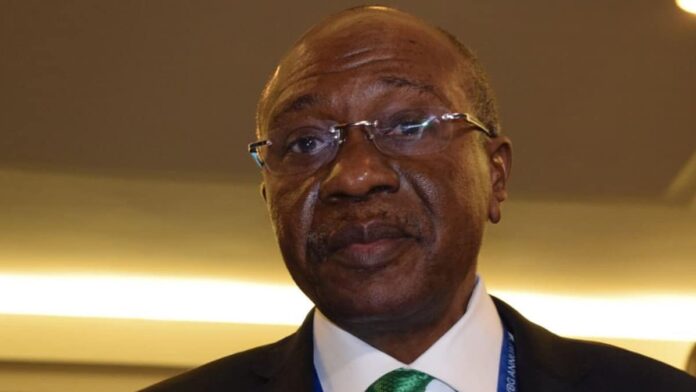FX Adjustment at Investors Window Draws Naira Closer to Fair Value
As Naira rate continues to struggle in the foreign exchange (FX) market, Chapel Hill Denham has noted that adjustment in the investors and exporters window has moved the local currency closer to its fair value.
The investment firm noted this in its West African report as Naira was exchanged at N410.25 to a dollar at the Investors and Exporters FX window on Friday.
Recently, Naira has continued to depreciate in the FX market due to lower currencies inflow into the external reserve as foreign investors sidelined the economy.
Just last week, the U.S. dollar index rose by 59 basis points (bps) over the previous week against a basket of major currencies, more than making up for the losses recorded in the prior week.
“We understand that the U.S. dollar benefitted from the rising U.S. longer-dated Treasury yield, even as returns on the front end remain repressed by the Fed’s quantitative easing programme”, Chapel Hill Denham said.
For the sake of clarity, analysts said the blend of the landmark success in the vaccination campaign in the U.S., together with expectations of more fiscal stimulus packages under President Biden, has led to a gradual portfolio reallocation away from Treasuries to riskier instruments, a development that lifted yields in the former.
Chapel Hill Denham said due to this, the rising interest rate differential between the U.S. and peer countries is now shifting valuation in favour of the U.S. dollars.
Jumpy Inflation Rate: No Respite until Second Half of 2021 –CHD
“That said, we guide that the rising U.S. yield, which connotes a gradually competitive risk-free rate in the US will continue to weigh significantly on U.S. equities, which is already considered to be overstretched on a valuation basis”, the report added.
“For us, we see no valid argument for a change in this pattern in the near term. Thus, the dollar will likely gather more steam at FX market in the coming week”.
In a related development, analysts said sentiments were broadly mixed in Nigeria’s fixed income market last week, as investors piled into attractive yields at the front end of the curve, while duration apathy continued at the longer end.
Financial system liquidity was broadly buoyant, thanks to Federal Accounts Allocation Committee inflow for February and a large open market operations (OMO) maturity of N423.8 billion.
Against that backdrop, the OMO benchmark curve eased by an average of 36bps in the week to 5.98%%, while the Nigerian Treasury Bill curve was flat at an average of 1.45% in the absence of price discovery.
In the bond market, the benchmark yield curve compressed by an average of 24bps wow to 9.94%.
Analysts attribute this to renewed interest at the short (-115bp to 6.82%) and intermediate (-20bps to 10.33%), while long term yields rose by an average of 25bps to 11.26%.
At the rollover T-Bill auction which held on Wednesday, the CBN, on behalf of the DMO, offered a total of N128.2bn across three tenors: 91-day (N20.37bn), 182-day (N55.85bn) and 364-day (N52.0bn) bills.
The auction was well bid, with a subscription level of N192.05 billion, implying a bid-cover ratio of 1.4x (1.2x previously).
As expected, stop rates expanded, rising by an average of 133ps to 3.67%: 91-day at 2.00% (+100bps), 182-day at 2.00% (+150bps) and 364-day at 4.00% (+150bps).
Nigerian sovereign bonds lost 5.7% on an aggregate basis in February (-11.0% in January), based on the S&P FMDQ Nigeria Sovereign bond index, as yields expanded across the curve by 109bps month on month.
This brings cumulative year-to-date loss to -16.7%. The sharp reversal of fortune, compared to the stellar performance recorded in 2020, was brought about by relatively tight interbank liquidity and increase in frequency of OMO auctions and stop rates at the auctions.
“Looking ahead, we expect liquidity from maturing OMO bills to drop significantly by 57.6% month on month to N465 billion in March.
“However, we expect bond coupon payments to rise to N213 billion from N50 billion in February, partly offsetting the drop in OMO maturities.
“Nonetheless, we believe the bellwether for market performance in March would be the CBN’s decision regarding maturing special bills”, Chapel Hill Denham said.
Recall, the CBN issued N4.2 trillion special bills in December 2020 to refund banks for excess cash reserve ratio.
The bills mature today, Monday March 1st, and it is unclear yet how the CBN will proceed.
“In the event of a full rollover, which is our base-case view, this will be negative for markets, given the already weak liquidity coming from OMO bills.
“Investors will also be looking forward to the publication of the NTB issuance calendar for Q2-2021”, analysts said.
SSA Eurobonds:
The bearish trend in SSA Sovereign foreign currency bond continued last week, as yields rose in response to surging US treasury yields.
“As we mentioned last week, credit risks and possibility of taper tantrum are thematic subjects for 2021, which would have consequential impacts on performance in 2021”, the firm stated.
However, the Fed has assured markets it is not in a hurry to increase rates or taper its quantitative easing (QE) programme, which will provide support.
In addition, the strong commodity tailwind should also provide some supports for market.
FX Adjustment at Investors Window Draws Naira Closer to Fair Value












